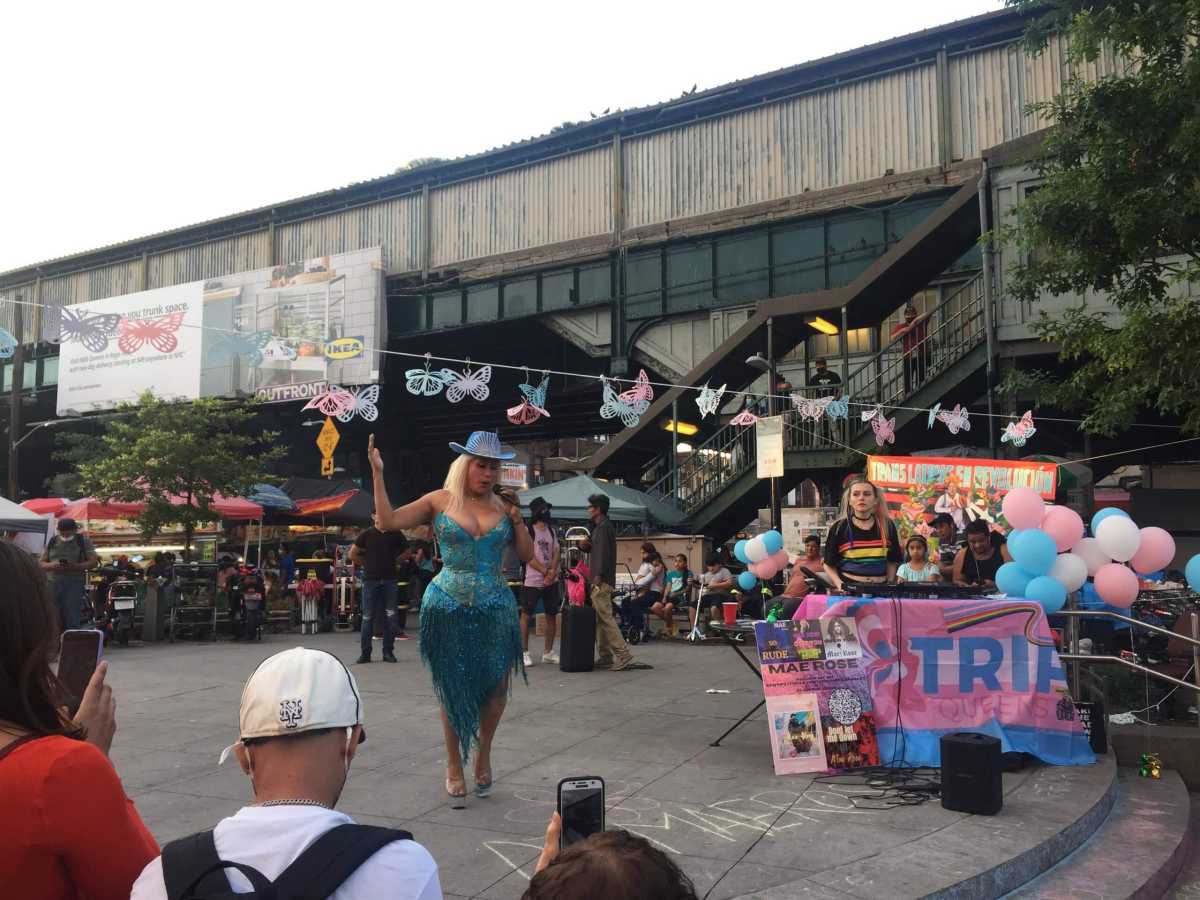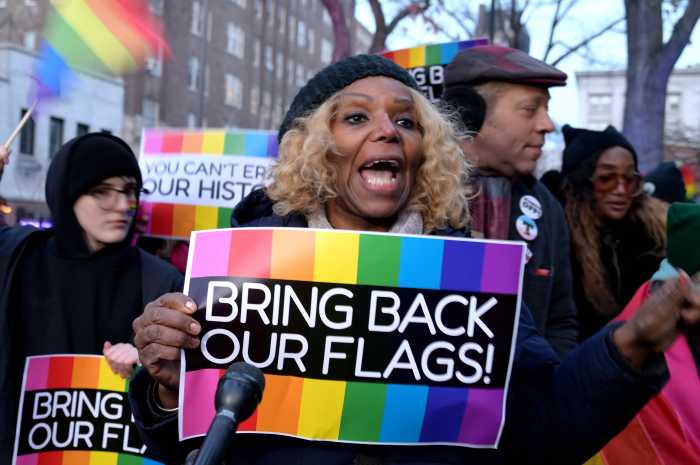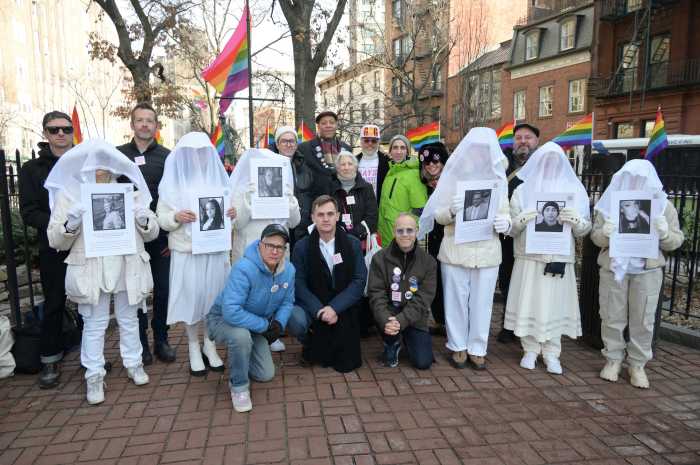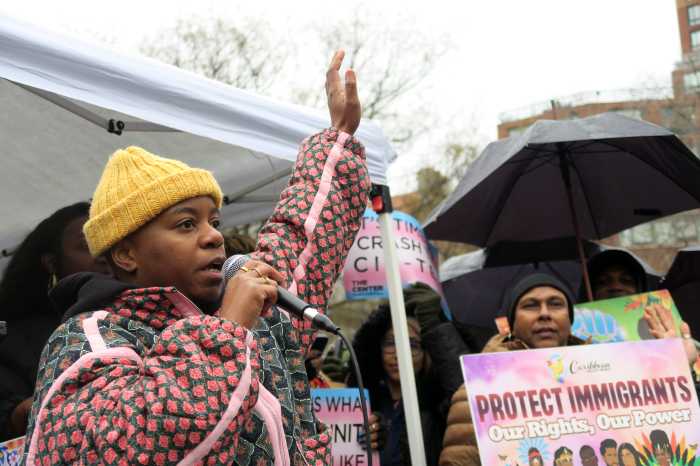The 12th annual TransLatinx March is slated to take place at Corona Plaza in Queens on July 15 during a three-hour event that will feature performances, food, and more, according to organizers.
The annual TransLatinx March, which is led by Make the Road NY and begins at 5 p.m., originally started as a protest against unequal treatment in professional spaces, including for customers or job-seekers facing discrimination. The focus was on mistreatment towards transgender individuals, but the event also expanded to emphasize the experiences of Latinx trans people — especially those with an immigrant background.
Now, a dozen years after the first march, organizers are still fighting for justice at a time when the community has faced great adversity.
“This year, it’s again back to the roots of demanding employment, and this is about employment protections for all trans folks, regardless of their industry of work, whether it is carpentry, or beauty, or sex work, or social work, whatever it is — that trans folks, one, are hired, and two, are protected,” said Mateo Guerrero, Make the Road NY’s program manager. Guerrero added that there “are no regulations about getting folks into employment to begin with, so our focus is protection for everyone across the board.”
The march began rather small, as participants could previously fit in Make the Road NY’s office, but the pandemic era coincided with a surge in support. Last year, 400 people participated in the march, and this year, Guerrero expects around 500, both from people who have been affected by the hundreds of anti-trans bills in statehouses and families coming out in solidarity.
“There are a lot of things that got exacerbated because of the pandemic,” Guerrero said. “And I think people are just ready — ready to take action, ready to get involved, ready to demand more protection from the city and state,” they said.
Aside from having a good time, with “lots of fun,” as they put it, Guerrero hopes that this march will help to prepare people for the fight to be had and promote legislative priorities such as the Stop Violence in the Sex Trades Act, a comprehensive sex work decriminalization bill that was first introduced in 2019 but has yet to advance.
Still, Guerrero does have some concerns about the potential for anti-LGBTQ sentiment at the march.
“What I’m worried about is the anti-trans, anti-everything, the white supremacists that have been showing up to Drag Story Hour,” he said.
The march’s actual route is undisclosed for this reason. Guerrero and other organizers want to ensure the security of participants, given the large number of trans protestors, including those in leadership positions.
“This march represents building safety for our folks, our trans community members who are aging, for trans young people who are starting their process, for trans folks my age who are standing on the shoulders of giants that built protections for us,” Guerreo said. “But now we owe it to them to maintain those protections.”





































